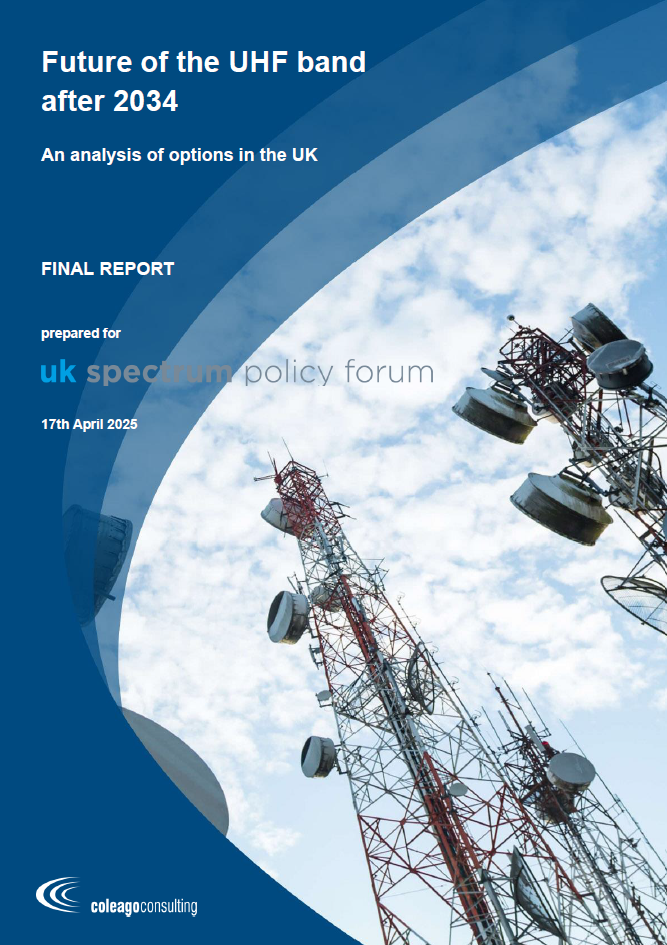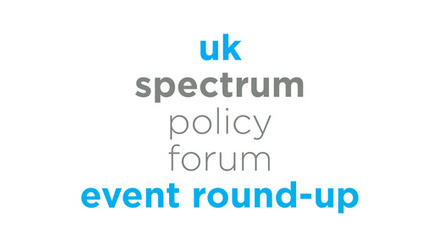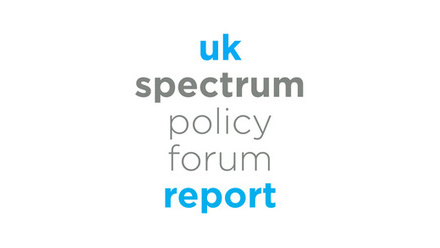UK SPF Event Round-up: Future Spectrum Policy Summit 2025
On Friday, the UK Spectrum Policy Forum brought together policymakers, regulators, industry leaders, and academics for the Future Spectrum Policy Summit 2025 to explore how spectrum policy can drive innovation, economic growth, and national priorities. In partnership with IEEE’s DySPAN 2025, the summit focused on spectrum as a strategic enabler for emerging technologies, resilient infrastructure, and cross-sector transformation.
Spectrum as a Catalyst for Innovation and Growth
The summit reaffirmed that spectrum is more than just a natural resource—it’s a driver of national competitiveness and innovation. From 6G to satellite services, ensuring availability and accessibility of spectrum will be critical to unlocking the next wave of digital advancements. Attendees emphasized the need to increase available spectrum bands and support shared access frameworks that lower barriers to innovation.
The UK’s leadership in shared access licensing was highlighted, having pioneered approaches since 2019 that enable innovation at local and national levels. Shared licensing models allow for tailored private networks, crucial for critical national infrastructure (CNI) such as energy, utilities, and emergency services.
A key message was that spectrum regulation must evolve with technology. The Department for Science, Innovation and Technology (DSIT) and Ofcom are working together to accelerate application processes, enable online licensing, and ensure regulatory frameworks support diverse use cases—from urban 6G to rural broadband.
While the UK is no longer part of EU negotiations, it continues to influence international spectrum policy, notably within CEPT and global standard-setting fora like the World Radiocommunication Conference (WRC). The UK is also leading in direct-to-device satellite proposals, reflecting its ambition to stay at the forefront of telecoms innovation.
Speakers acknowledged that international harmonization remains challenging, as countries regulatory frameworks diverge between prioritizing consumer services and industrial strategies. Yet, alignment remains essential for interoperability and global scale, particularly in satellite systems where domestic and international regulations intersect.
Enabling Advanced Network Technologies
Another major theme was the integration of AI into spectrum management and telecom networks. The recently published AI for Spectrum Management report is resonating across government and academia, providing a roadmap for how AI can optimize spectrum sharing and network efficiency.
Innovation sandboxes were discussed as crucial tools to test real-world applications and explore spectrum coexistence solutions. These pilots provide valuable data to inform policy and shape the future of regulation. DSIT and Ofcom called for broader collaboration with industry to ensure sandboxes reflect the complexity of deployment environments.
Spectrum policy must support the future shape of telecom networks, which will be increasingly hybrid, shared, and intelligent. There is no one-size-fits-all solution, and multiple network types will coexist, including local 6G deployments, private networks for CNI, and commercial public networks.
Discussions around mission-critical services emphasized the need for resilient and scalable connectivity, especially for sectors like energy, which is undergoing a digital transformation to meet clean power goals by 2030. Local and low-band spectrum use was highlighted as cost-effective for such deployments.
The summit also explored the evolving role of non-terrestrial networks (NTN) in future mobile systems. NTNs will play a crucial role in coverage extension, resilience, and sustainability, integrating with terrestrial 6G networks from the start. Satellite services, including LEO constellations and direct-to-device, are being considered for emergency services and rural connectivity, complementing ground infrastructure.
The UK's proactive stance in shaping the satellite regulatory framework was noted, particularly its leadership in CEPT’s preparation to the upcoming WRC-27. The CPG’s creation of two new satellite groups reflects the growing complexity and importance of this sector.
Future of the UHF band
The summit also saw the launch of a new report commissioned from Coleago Consulting and titled “Future of the UHF Band After 2034: An Analysis of Options in the UK.” The report examines how best to manage the 470–694 MHz UHF band—currently essential for Digital Terrestrial Television (DTT), Programme Making and Special Events (PMSE), and mobile communications—once DTT licenses expire in 2034.
At the Summit, a panel of experts discussed the report’s key findings and explored next steps for balancing the growing spectrum demands of different sectors. The discussion highlighted the ongoing importance of DTT in combating digital exclusion, the increasing need for mobile spectrum to support rural connectivity and network capacity, and opportunities for shared use in the creative industries relying on PMSE.
As demand for sub-1 GHz spectrum intensifies, future policy decisions will require careful trade-offs to ensure that economic growth, social inclusion, and innovation are not compromised.

The expert panel emphasised the need for continued dialogue among stakeholders to develop flexible, forward-looking approaches that reflect the evolving needs of UK citizens, industry, and public services.
Looking Ahead: Spectrum for Growth
Finally, the summit stressed that spectrum’s role goes beyond economic growth. It must also support climate goals, national resilience, and public services. Ensuring equitable access, especially in rural and underserved areas, will help boost local businesses and foster digital inclusion.
As spectrum becomes increasingly political and strategic, the UK aims to maintain a technical, evidence-based approach—anchored in innovation and international engagement. The results of ongoing sandboxes and research will soon be published, providing a foundation for future policy.
The Future Spectrum Policy Summit 2025 made it clear: spectrum is not just infrastructure, it’s a platform for transformation. Through collaborative policymaking, agile regulation, and international leadership, the UK is well-positioned to unlock the full potential of spectrum for the decades ahead.
Slides
Contact us

Tales Gaspar
Tales has a background in law and economics, with previous experience in the regulation of new technologies and infrastructure.

Sophie Greaves
Sophie Greaves is Associate Director for Digital Infrastructure at techUK, overseeing the Telecoms Programme, the Data Centres Programme, and the UK Spectrum Policy Forum.





